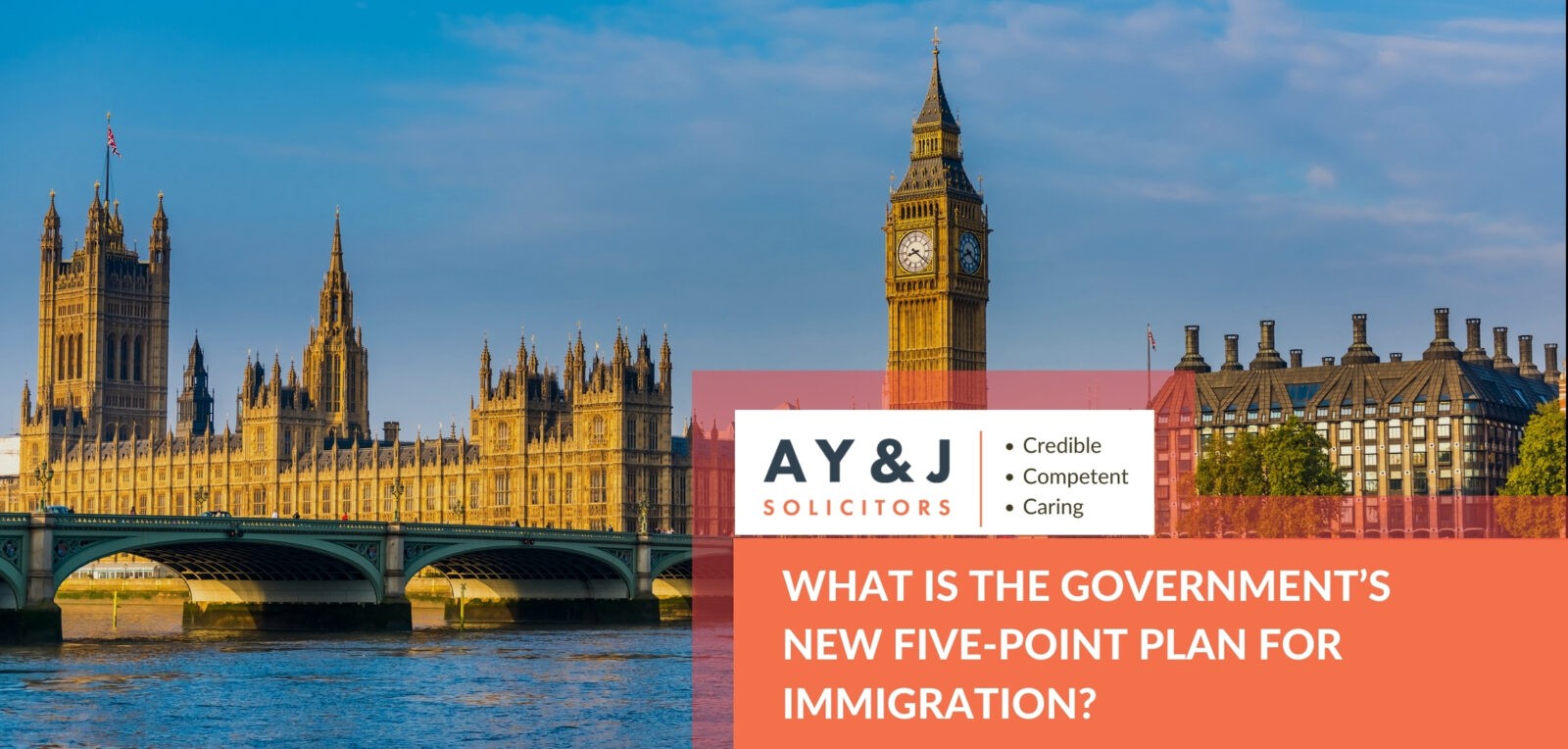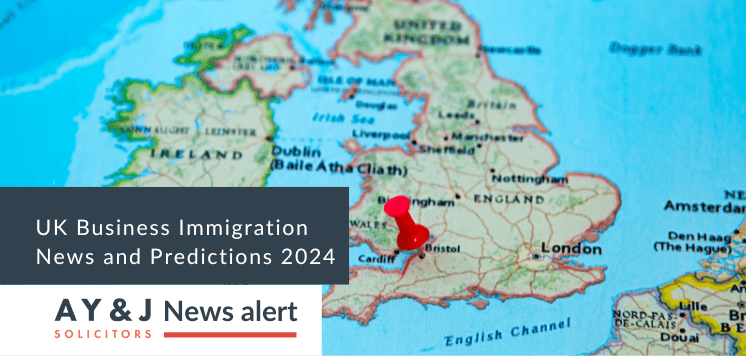Disclaimer: The information in this blog is accurate as of its publication date. Any updates after that date are not reflected here.
On 4th December 2023, the Secretary of State for the Home Department, James Cleverly, made a statement to the House of Commons setting out the government’s new five-point plan for immigration. The package of measures which the government aims to implement in Spring 2024 is ultimately designed to cut net migration to the UK. But what exactly are the proposed changes, and what is the possible impact on UK employers, workers, and students coming to the UK from other countries?
Table of Contents
Why has the government announced a five-point plan for immigration?
The announcement of the five-point plan for immigration follows the publication of figures by the Office for National Statistics (ONS) showing that net migration to the UK is still much higher than the government would like it to be. Net migration was an estimated 672,000 in the year ending June 2023, down 10% from 745,000 in the year ending December 2022.
With an election expected at the end of 2024, the government is extremely keen to demonstrate that it has immigration under control. As the Secretary of State explained in his announcement, migration to this country is far too high and needs to come down. Today, we are taking more robust action than any Government have before in order to bring it down. Since my first day in the Home Office just three weeks ago, I have been determined to crack down on those who try to jump the queue and exploit our immigration system. I have been working closely with my right hon. Friend the Immigration Minister on this subject. The recent figures from the Office for National Statistics show a provisional estimate of net migration for the year ending June 2023 of 672,000. While that is lower than the ONS estimate for net migration for the year ending December 2022, it is still far too high”.
What is the five-point plan for immigration?
The five changes proposed by the Home Office are as follows:
- Prevent care workers from bringing their dependants to the UK
Under the new proposals, overseas care workers will no longer be able to bring their partner or children with them to the UK. Home Office data suggests that health and care workers are more likely to be joined by family members than people on other work visas. This change may have a significant impact on care sector workers and employers, given that over 101,000 health and care worker visas and around 120,000 dependant visas were issued in the year ending September 2023. The government is betting that more domestic workers will take up roles in the care sector, and the attractiveness of the UK as a destination for care workers will still be enough to meet demand. Under this change, the Home Office will also require all care firms in England to be regulated by the Care Quality Commission in order to sponsor overseas candidates.
2. Substantial increase in the minimum salary for Skilled Worker visa applicants
The minimum salary requirement for Skilled Worker visa applicants will increase from the current amount of £26,200 per year to £38,700 in Spring 2024. The government is justifying this change on the basis that the requirement will be brought into line with the median wage for eligible skilled roles. However, this increase will not apply to those applying for health and care worker visas. This exemption also applies to applicants whose roles are on a national pay scale (e.g. teachers).
The increase in salary requirements added to the proposed 67% immigration healthcare surcharge increase will place a considerable financial burden on UK employers seeking to fill vacancies with overseas candidates.
3. Shortage occupation changes
Under the proposed changes, the government intends to end the 20% reduction for the ‘going rate’ salary requirement for those in roles on the shortage occupation list. In addition, they plan to “reform” the shortage occupations list (SOL). The Migration Advisory Committee are currently reviewing the SOL with the aim of updating the number of shortage occupations and the associated salary requirements.
4. Family visa minimum income to rise by over 200%
James Cleverly has stated his intention to increase the minimum income requirement for family visas to the skilled worker threshold. First-time family visa applicants will need to show that their UK based partner has an income of at least £29,000 from Spring 2024. The threshold will later rise to £34,500 and ultimately will reach £38,700 in 2025. Under the current rules, the family visa income requirement is £18,600. The government has justified this increase on the basis that the minimum income requirement has not been increased since 2012. The harsh reality for thousands of British and settled people in the UK is that only the wealthiest will now be able to bring loved ones to the UK.
5. Graduate visa review
Finally, the Home Secretary has asked the Migration Advisory Committee to review the graduate route to “prevent abuse and protect the integrity and quality of the UK’s outstanding higher education sector”. As he stated, this follows the prevention of overseas master’s students from bringing family members to the UK. Under the current rules, overseas students completing a graduate-level course of study in the UK can remain here for two years. It is not clear what the potential impact of this review will be, however, any removal of the rights of students to stay in the UK post-study may have an adverse impact on both universities and employers in the UK.
Final words
Mr Cleverly is expecting his five-point plan, if it comes to fruition, to reduce net migration to the UK by around 300,000. While he may see this as a win for the government, the implications for the economy, employers, and families also need to be fully understood. We expect more details about these immigration reduction measures to be released by the Home Office in the coming weeks. We will keep you fully up to date as more details are published.
Need assistance?
A Y & J Solicitors is a specialist immigration law firm with extensive experience with all types of visa applications. We have an in-depth understanding of immigration law and are professional and results-focused. For assistance with your visa application or any other UK immigration law concerns, please contact us on +44 20 7404 7933 or contact us today. We’re here to help!









